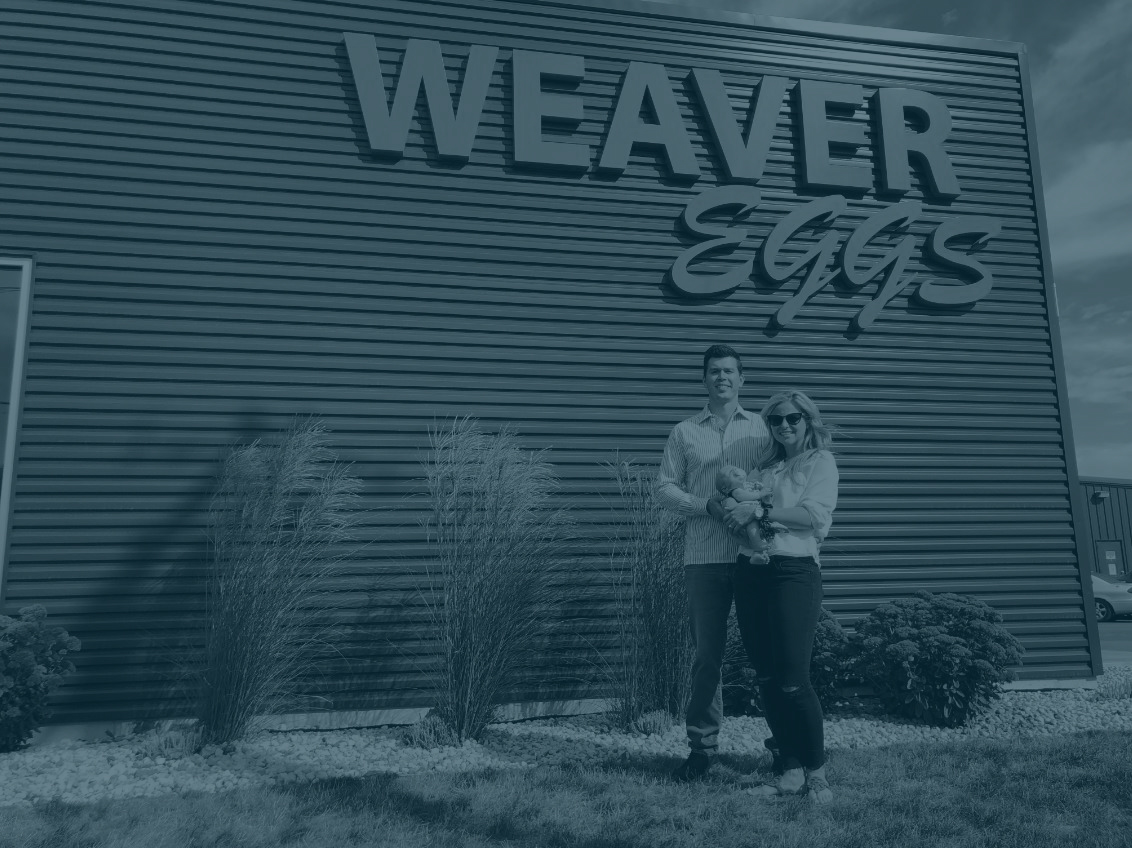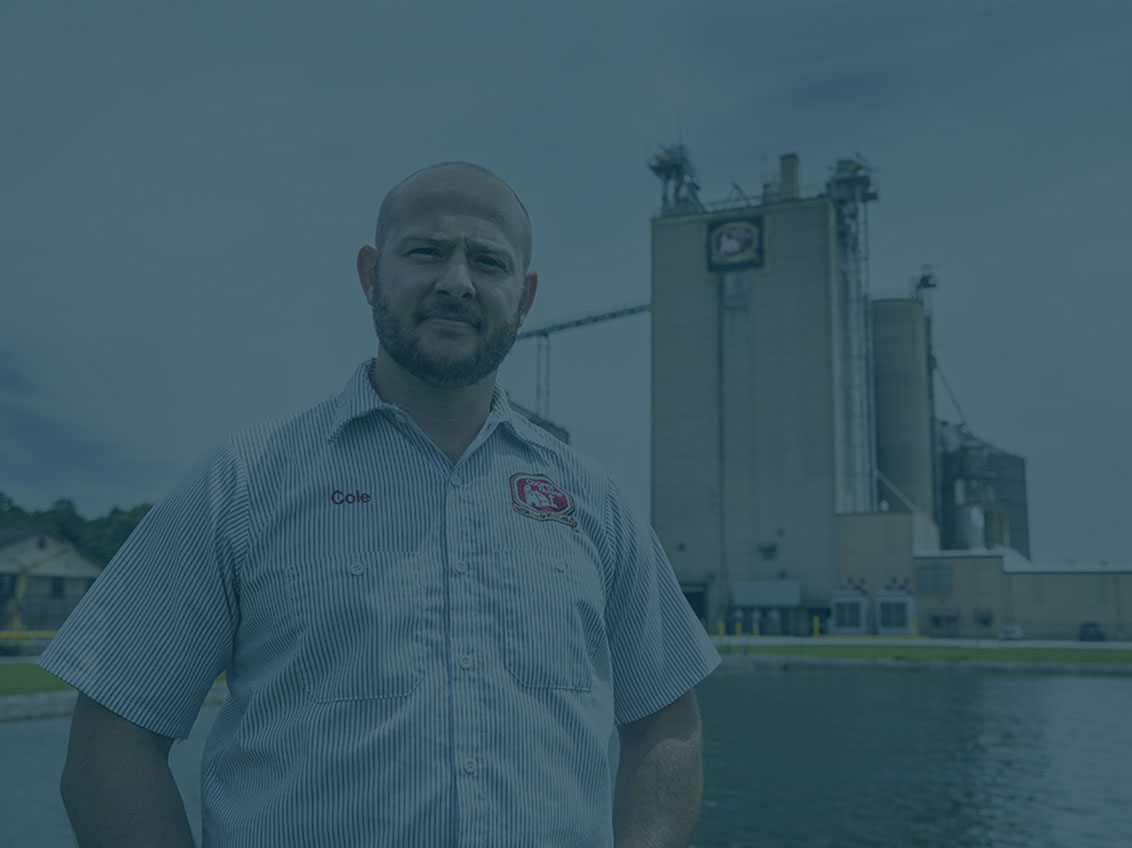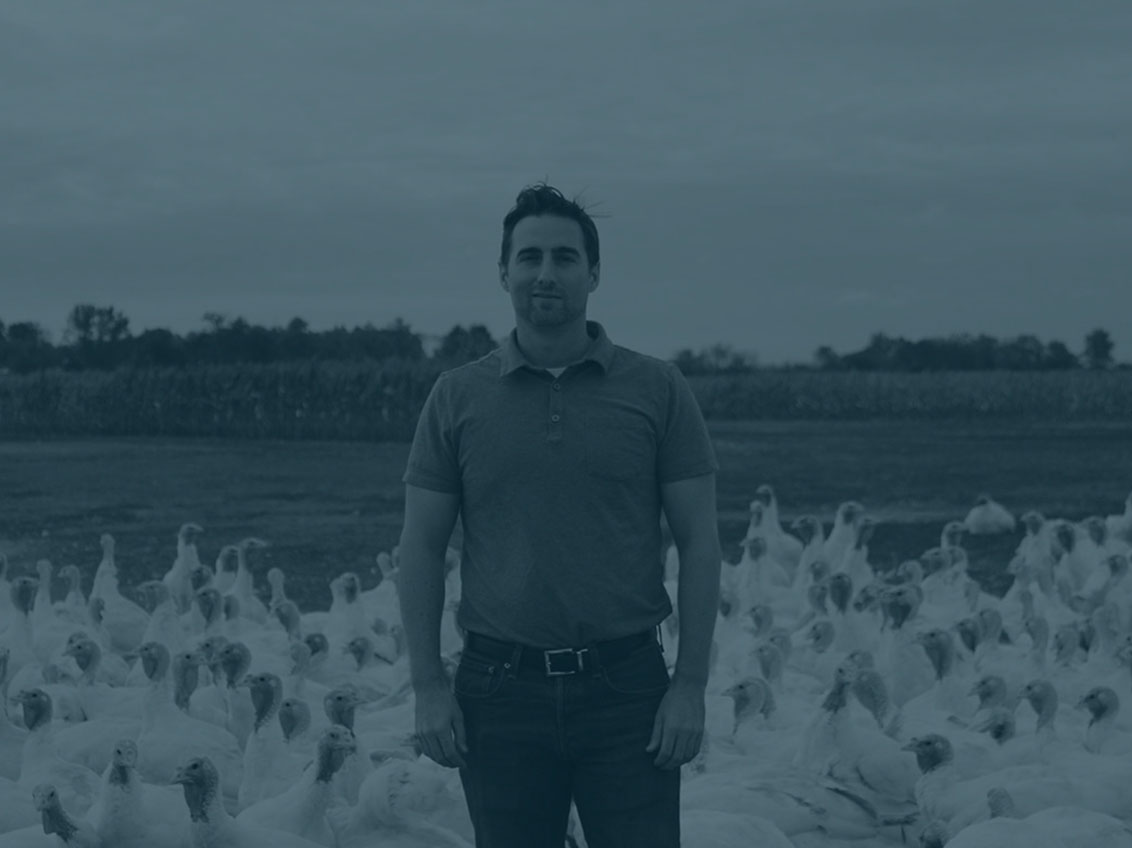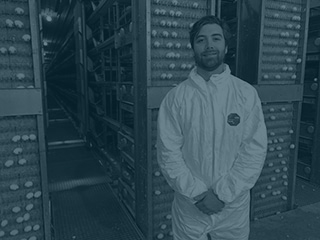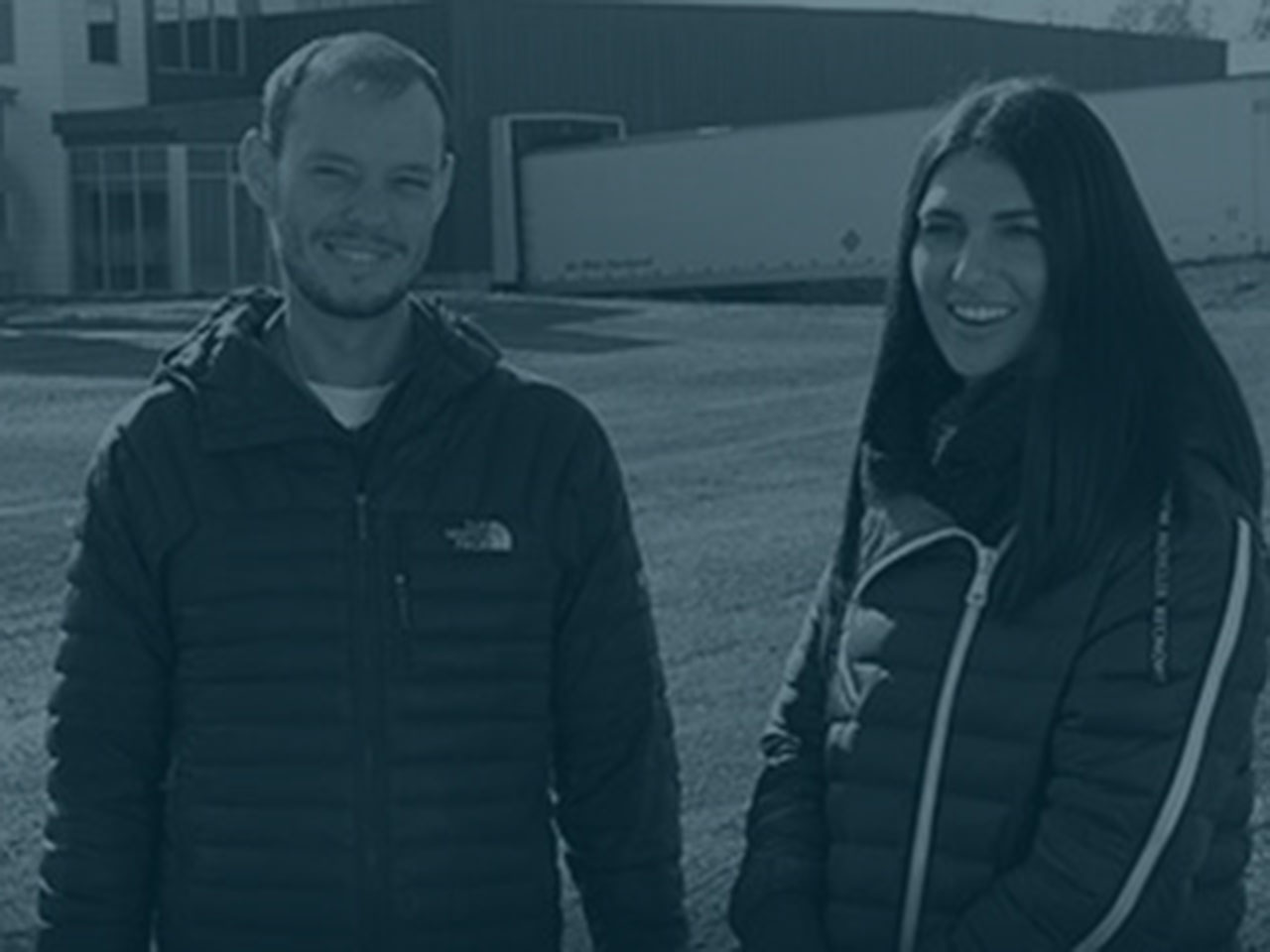
Responsible Farms
MEET OHIO EGG, CHICKEN AND TURKEY FARMERS
Ohio's egg, chicken and turkey farming families are committed to providing excellent care for their animals and producing safe, nutritious food products for families across the nation, all while using environmentally friendly farming practices.
Ohio's egg, chicken and turkey farmers know that providing excellent animal care is key to producing safe, high-quality foods, which is why they take their responsibility as animal caretakers seriously. Farmers ensure their flocks are kept safe and healthy by providing:
- Comfortable, temperature-controlled barns for hens to live in that protect them from extreme weather, disease, predators and other biohazards
- A continuous supply of fresh food and water
- Animal care teams who monitor flocks' health and behaviors round-the-clock
Farms also voluntarily participate in quality assurance and food safety programs to ensure the egg, chicken and turkey products they produce are safe to eat and of the highest quality. These programs include, but are not limited to:
- United Egg Producers Certified Animal Welfare Program: Voluntary hen well-being program that sets strict standards for hen comfort, health and safety
- National Chicken Council Animal Welfare Guidelines: Science-based recommendations for proper treatment and humane care of broiler chickens
- National Turkey Federation's Standards of Conduct: Standards that enhance food safety, animal well-being and protection of soil and water resources
Biosecurity is essential to keeping Ohio's poultry flocks healthy and is a responsibility that poultry owners of all sizes share. Ohio's egg, chicken and turkey farmers prevent the introduction and spread of disease on their farms by enforcing strict biosecurity measures, including:
- Restricting access to chicken and turkey barns to essential personnel only
- Prohibiting employees from keeping or handling birds off the farm or visiting multiple poultry barns on a given day
- Increasing the use of protective gear, including biosecurity suits and shoe covers
- Preventing the spread of germs by cleaning and disinfecting tools, equipment and vehicles before entering and leaving the farm
- Purchasing feed from a reliable source, and handling and storing it in a way that limits exposure to rodents, insects and wild birds
- Providing clean, disinfected water for birds (avoid using surface water, such as ponds or lakes)
- Installing security cameras and other surveillance measures to ensure no unauthorized person enters a facility
- Monitoring of flocks closely by animal care teams and veterinarians
Additionally, Ohio egg and poultry farmers have incorporated recommendations from state and national regulatory programs, such as the United States Department of Agriculture's Defend the Flock Program, which further ensures the well-being of Ohio's chicken and turkey flocks. No matter if flocks are being housed in conventional, cage-free or free-range living systems, OPA and its farmer-members believe that providing flocks with an environment that is safe and disease-free is essential to ensuring the overall quality and safety of the food products they produce.
One of Ohio egg and poultry farmers' most important responsibilities is ensuring the safety and quality of the food products they produce. Ohio egg, chicken and turkey farmers participate in several voluntary and mandatory programs to ensure the foods they produce are safe and of the highest quality for families across the state and nation. These programs include:
- Ohio Egg Quality Assurance Program (OEQAP): A cooperative effort between the Ohio Department of Agriculture, OPA and its farmer-members, which sets standards for the production, processing and transportation of eggs. This program was created to minimize the risk of Salmonella Enteritidis (SE) in eggs and provides step-by-step procedures for egg farmers to produce, pack and sell the safest, freshest and highest-quality eggs for consumers.
- National Poultry Improvement Plan (NPIP): NPIP was first established in the 1930s to coordinate state programs aimed at the elimination of pullorum disease from commercial poultry flocks. The program has since been expanded to include testing and monitoring for Salmonella typhoid, Salmonella enteritidis, Mycoplasma gallisepticum, Mycoplasma synoviae, Mycoplasma meleagridis, and Avian Influenza.
- U.S. Food and Drug Administration's Egg Safety Final Rule: A regulation that requires U.S. egg farmers to take preventive measures during egg production, including refrigeration of eggs and egg products during storage and transportation. Annually, this regulation is expected to prevent approximately 79,000 cases of foodborne illness and 30 deaths caused by consumption of eggs that are contaminated with the bacteria Salmonella Enteritidis.
- United Egg Producers' "5-Star" Egg Safety Program: A voluntary program that goes beyond the Egg Safety Final Rule's requirements to provide egg farmers with a comprehensive, dependable food safety program from the farm through processing.
The majority of Ohio's egg, chicken and turkey farmers live in the same communities where their farms are located, which is one of the many reasons why they take their responsibility for protecting and preserving the environment seriously.
For generations, farmers have followed best management practices for protecting bodies of water, managing the land and soil, and keeping the air clean, and are constantly looking for ways to become more sustainable while further reducing their farms' environmental footprints. Some of the ways Ohio's poultry farmers fulfill this commitment include:
- Improving hen housing systems to minimize odors and improve air quality
- Feeding hens specially formulated feed rations to minimize nutrient waste
- Recycling and composting manure, water and other materials
- Working with water and soil conservation agencies
- Practicing responsible manure management on farms
Farmers operate their farms under several environmental management standards set forth by state and national regulatory agencies. Additionally, Ohio is home to several egg, chicken and turkey farming operations that have received awards in recognition of their commitment to environmental stewardship.
To meet the demands of an ever-growing population, Ohio's egg, chicken and turkey farmers know they must continue to become more efficient in how they produce their food products. Farmers achieve this by implementing new technologies and systems on their farms to improve efficiency and reduce their use of natural resources, such as land, water and energy.
Progress has been made in many ways - from housing equipment to disease prevention measures and efficiency of feed production and use, among others. One of the many advancements egg farmers have made over the past several decades has been the introduction of conveyor belts, which can be found in most modern egg farms. Conveyor belts collect eggs as soon as they're laid and transport them to a processing plant where they are thoroughly sanitized, inspected, packed and refrigerated.
Since the 1960s, U.S. egg farmers have:





Ohio's egg and poultry farmers are passionate about being active members in their local communities and ensuring that all families have access to fresh, nutritious eggs. Farmers volunteer their time to church and civic groups, schools and political activities, and make regular food donations to local hunger relief organizations throughout the year.
Additionally, Ohio egg, chicken and turkey farmers participate in the Ohio Agricultural Clearance Program, which is a statewide program that directs Ohio agricultural products to low-income families via the network of the Ohio Association of Foodbanks. Since 2005, Ohio egg farmers have donated more than 10 million eggs to Ohioans in need.
